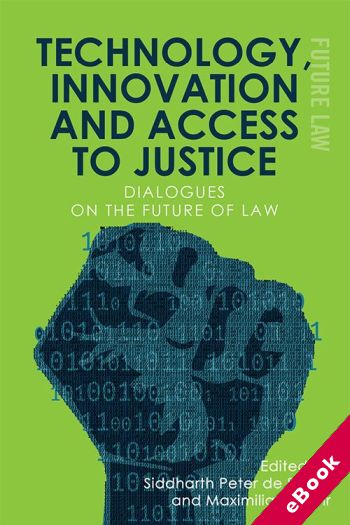
The device(s) you use to access the eBook content must be authorized with an Adobe ID before you download the product otherwise it will fail to register correctly.
For further information see https://www.wildy.com/ebook-formats
Once the order is confirmed an automated e-mail will be sent to you to allow you to download the eBook.
All eBooks are supplied firm sale and cannot be returned. If you believe there is a fault with your eBook then contact us on ebooks@wildy.com and we will help in resolving the issue. This does not affect your statutory rights.
Asks how technology can help people to access justice across the legal industry.
While legal technology may bring efficiency and economy to business, where are the people in this process and what does it mean for their lives?
Around five billion people globally are unable to address their everyday legal problems and do not have the security, opportunity or protection to redress their grievances and injustices. Courts and legal institutions can often be out of reach because of costs, distance or a lack of knowledge of rights and entitlements and judicial institutions may be under-funded leading to poor judicial infrastructure, inadequate staff, and limited resources to meet the needs of those who require such services.
This book sets out to embed access to justice into mainstream discussions on the future of law and to explore how this can be addressed in different parts of the legal industry. It examines what changes in technology mean for the end user, whether an ordinary citizen, a client or a student. It looks at the everyday practice of law through a sector-wide analysis of law firms, universities, startups and civil society organisations. In doing so, the book provides a roadmap on how to address sector-specific access to justice questions and to draw lessons for the future. The book draws on experiences from judges, academics, practitioners, policy makers and educators and presents perspectives from both the Global South and the Global North.